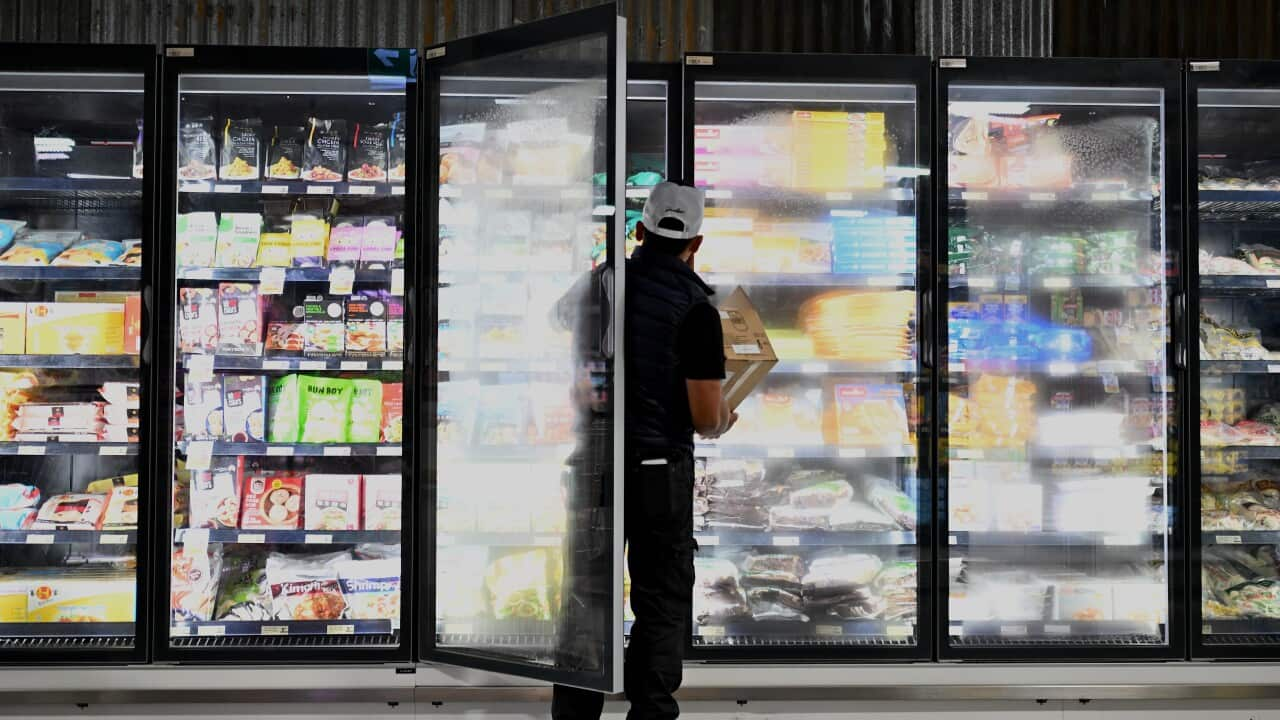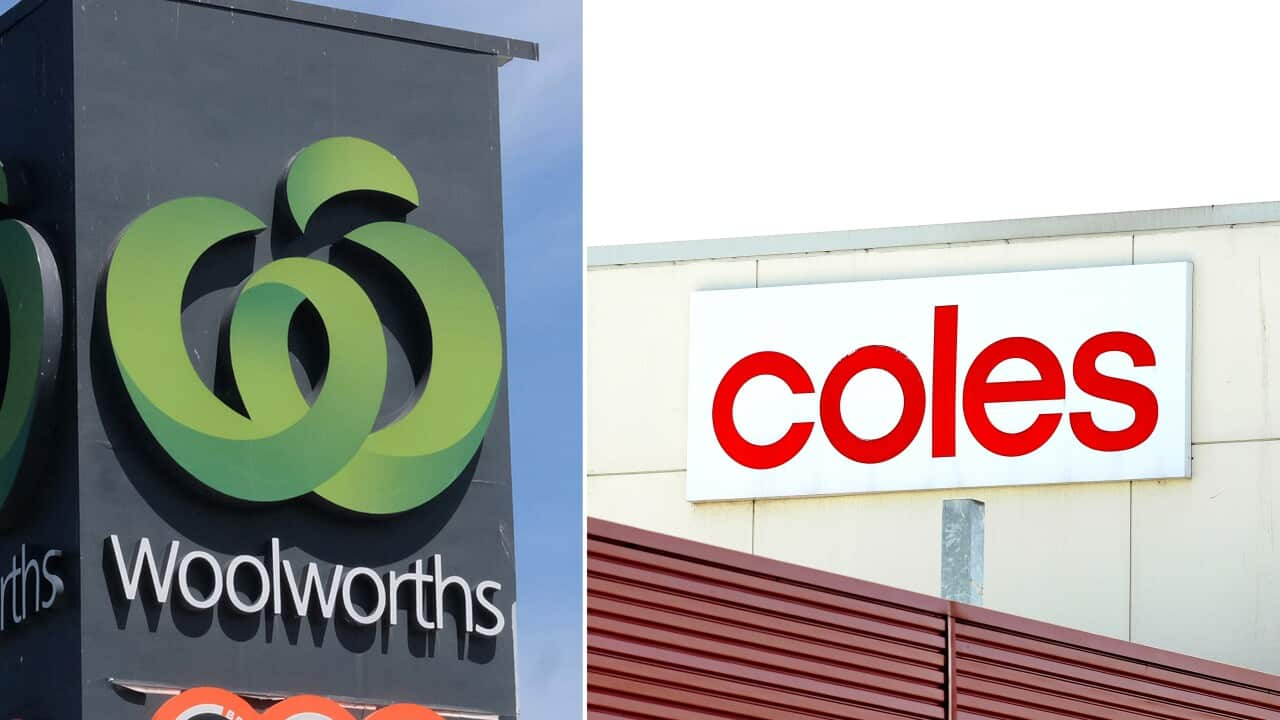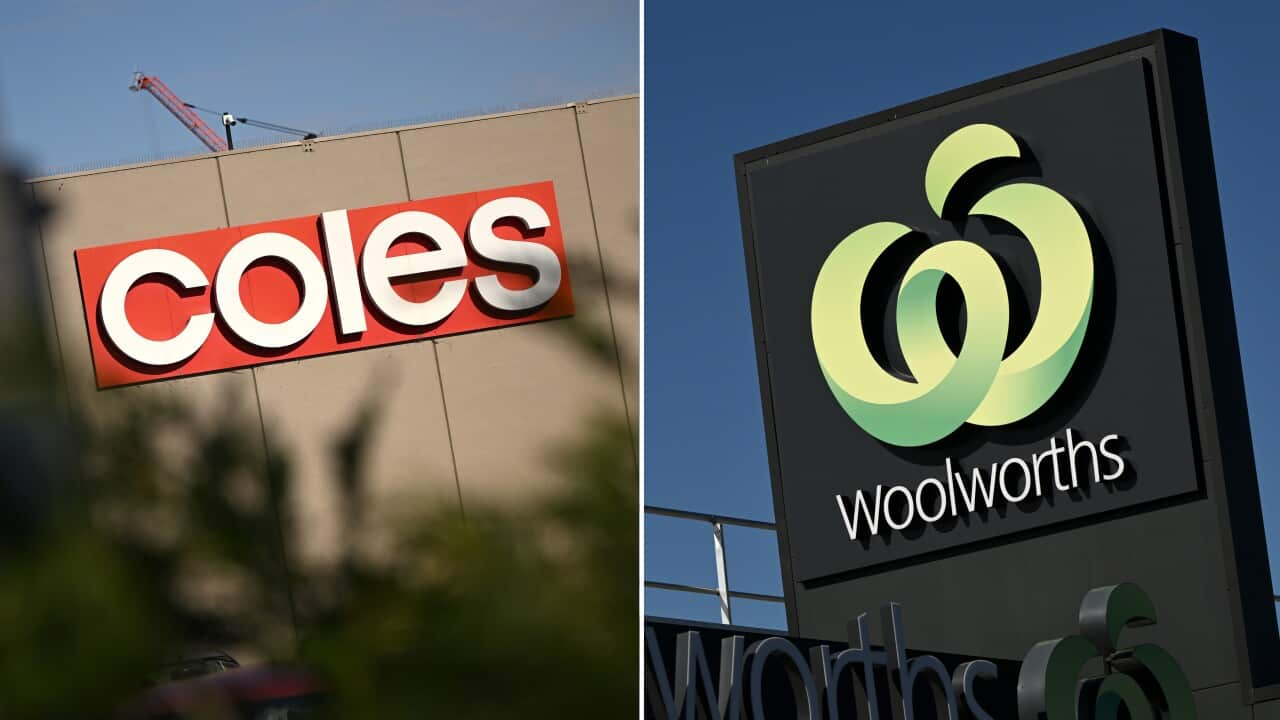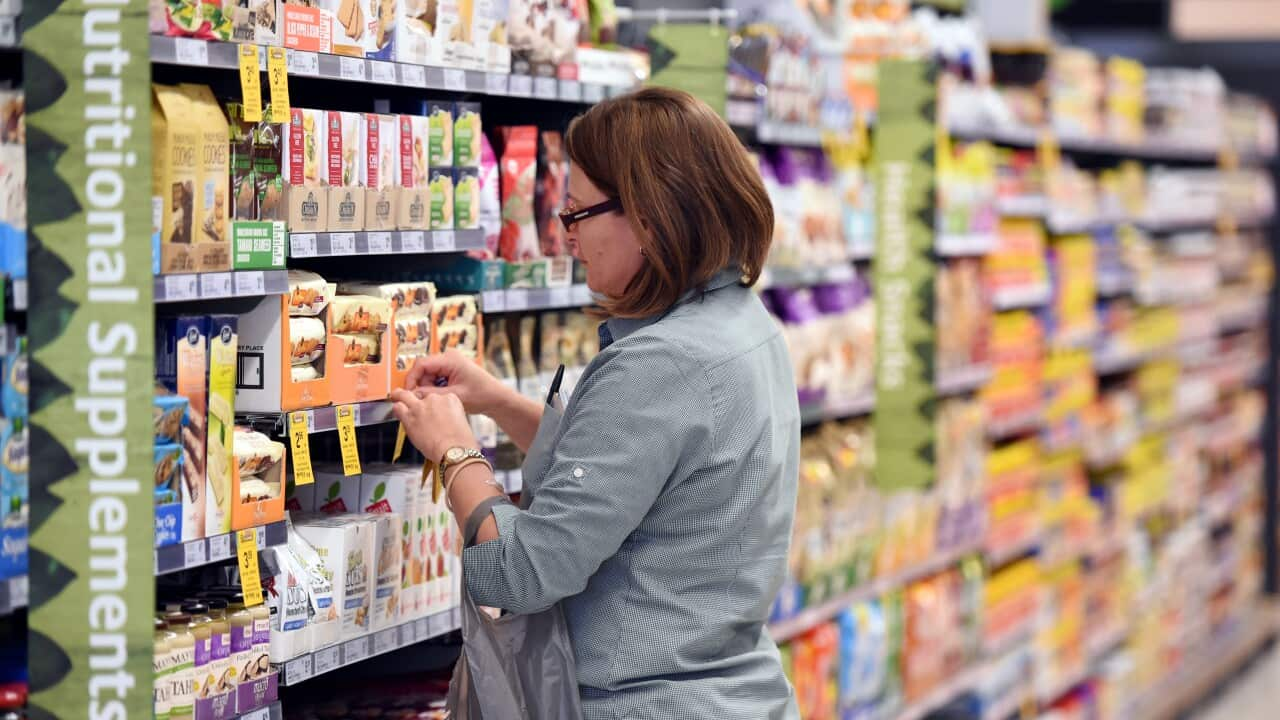Supermarkets would be banned and face heavy fines for price gouging under a new Labor government election pledge.
Prime Minister Anthony Albanese has promised to make excessive pricing illegal if re-elected for a second term.
"We will introduce legislation making price gouging illegal by the end of this year," he said on ABC's Insiders program on Sunday morning.
"What we want to make sure is that they (supermarkets) know that they're being watched. They know that the government is prepared to take strong action and crack down."
The prime minister later said that supermarkets are "taking the piss of Australian consumers".
So, what's Albanese promised — and is price gouging even happening? Here's what you need to know.
What has Albanese promised on supermarket price gouging?
Albanese said that if Labor wins the 3 May federal election, supermarkets found to be price gouging would receive "heavy fines".
"Australians deserve a fair go at the checkout, and my government will hold the big supermarket chains to account," he said.
Finance Minister Katy Gallagher added during a Canberra press conference that the new plans aim to combat rising cost of living pressures.
"The Anthony Albanese government is focused on responding to those cost of living pressures. We have heard Australians are under pressure.
"We know prices at the supermarket have hit household budgets, and that's why this government, for the last three years, has been focused on doing what we can to take pressure off households without adding to inflation."

Anthony Albanese and Finance Minister Katy Gallagher speaking to reporters in Canberra. Source: AAP / Lukas Coch
Labor would first implement recommendations from the Australian Competition and Consumer Commission's (ACCC) supermarket inquiry report to improve transparency about prices, promotions, and loyalty programs.
A task force would be set up to advise on introducing an excessive-pricing regime for supermarkets to be policed by the consumer watchdog.
The group would include Treasury, the ACCC and other experts who would consult and report to the federal government within six months.
Are big supermarkets price gouging? It's complicated
Australia's consumer watchdog released its final report after a year-long supermarket inquiry, finding the dominance of Woolworths and Coles had an "oligopolistic" effect on the broader industry.
But the ACCC resisted calls for it to be granted powers to break up the two major corporations, saying there was no "silver bullet" to fixing the supermarket sector.
They also said it was "very difficult" to tell whether price gouging was actually happening in supermarkets.
"We didn't reach that [price gouging] conclusion, and part of the reason is the complexity of making that when you look at the range of products and the different margins that they have, and the fact that they change pricing almost on a weekly basis," ACCC deputy chair Mick Keogh said.
"It's very difficult to get to the bottom of that. The profitability figures do give you some very broad picture of what's happening, but the issue of price gouging isn't one we were able to engage in too closely."
The ACCC found that between 2018 and late 2021, grocery prices increased largely in line with wages, but by the end of 2022 and start of 2023, grocery prices were increasing at more than twice the rate of wage growth.
Supermarket profits have increased in that time, but the major companies claim it is not a "dramatic" rise.
The report also didn't seek to determine whether the prices of profit margins at big supermarkets were "excessive", as ACCC regulates supermarket conduct — and running a business at a profit isn't illegal.
Coles, Woolworths reject Albanese's proposal
On Sunday, Coles, Woolworths and peak retail body the Australian Retailers Association (ARA) responded to the prime minister announcing plans to outlaw price gouging.
A spokesperson for Coles rejected claims that the supermarket giant engaged in price gouging and argued their margins are comparable to their peers in countries including Canada, the UK and the US.
"Despite a 12-month inquiry into supermarkets, neither the government or the ACCC found evidence of price gouging," they said in a statement to SBS News.
"What's needed are measures that tackle the real factors driving higher grocery prices, which are rising costs such as energy, fuel, labour, insurance, production, freight and distribution."
In a separate statement, Woolworths echoed Coles' comment that the ACCC's final report found no evidence of price gouging, and said it had taken steps towards fulfilling many of the ACCC's recommendations.
ARA chief industry affairs officer Fleur Brown similarly said that repeated inquiries have "failed to find any evidence of supermarket price gouging".
"The ACCC's findings clearly state that grocery inflation has been driven higher by the cost of wages, energy and fuel," she said.
"Yet, instead of hearing how the government will address these issues, which significantly affect all Australian retailers and consumers, we unfortunately see more taxpayer-funded deflection.

Opposition leader Peter Dutton spoke at Austral brickworks in Sydney on the second day of campaigning. Source: AAP / Mick Tsikas
What is the Coalition promising on supermarkets?
Opposition leader Peter Dutton said Albanese couldn't "stand up to the supermarkets".
"I would say that the prime minister is weak as water, I really would. The supermarkets know it and Australians know it. I think you've got a prime minister who can't stand up to the supermarkets.
"We have said to the supermarkets, you rip off Australian consumers, and you continue to believe that your market share gives you power in the market that should be exploited, I will act as prime minister, and this prime minister has demonstrated that he won't."
Dutton says the Coalition's policy is divestiture, a supermarket commissioner and "significant fines that start at $10 million".
"Prices are up at supermarkets at the moment because of Anthony Albanese. That's the predominant reason."
What about the Greens?
In early March, the Greens announced that a priority for their party would be making price gouging illegal by the middle of this year.
Their proposal would create a 'prices commission' to monitor supermarkets for price gouging, with corporations that unreasonably increased prices being subject to massive fines or divestiture. That commission would start operating in July.
Last year, the Greens introduced a bill to ban supermarket price gouging, which was voted against by both Labor and the Liberals.
On Sunday, Greens leader Adam Bandt took credit for inspiring Labor's proposal, saying on X: "After adopting most of our plan to see the GP for free, Labor has now followed the Greens' plan to make supermarket price gouging illegal."
Greens senator Nick McKim, the party's economic justice spokesperson, added: "While Mr Albanese is browsing the Greens' website looking for policy ideas, he should also copy and paste our plan to get dental into Medicare and end native forest logging."
Bandt reiterated that the policies should go one step further than fines, and that supermarket companies that abuse their market power should face the prospect of divestiture and face serious penalties.
"These supermarkets are making billions of dollars of profits. The fines do need to be high to make sure that the supermarkets listen," he said.
"But even more than that, what the Greens want to see is the supermarkets know that they could be broken up as well if they keep on abusing shoppers and abusing their market power, that's where the penalty should be."
Will a price gouging ban make groceries cheaper?
While there are hopes that a mission to stamp out price gouging may lead to better grocery prices, not everyone is convinced.
"The widely popular narrative of 'stamping out price gouging' by dragging supermarket chief executives into public hearings and threatening them with jail time might have inferred such inquiries would lead to lower food prices," Gary Mortimer, professor of marketing and consumer behaviour at Queensland University of Technology, wrote in The Conversation earlier this month.
"In isolation, they have not."
While supermarkets face scrutiny, it's unclear if consumers will feel the difference at the checkout.
With reporting by the Australian Associated Press.






